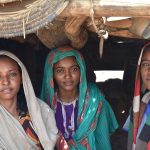Youth account for 60% of Africa’s unemployed. In Rwanda, 72% of employed youth work for family firms or are self-employed (African Economic Outlook 2016). These outcomes suggest that schools are failing to develop the skills required to enter formal sector jobs or launch and grow small firms. In response, Rwanda is one of ten African…
Employment
Impacts of Microfranchising on Young Women’s Occupational Choices
Youth underemployment is a major challenge facing developing nations, particularly in Africa (Filmer and Fox 2014). Young people are more likely to be unemployed than older adults (Kluve et al. 2016). In low-income countries, unemployment figures also typically underestimate the proportion of youths who cannot find productive jobs (Fares et al. 2006). After leaving school,…
Training, Financing, and Matching between Workers and Firms
Small and Medium Enterprises (SMEs) play an important role in income and employment generation in local economies, and SMEs account for a large share of businesses in low and income countries (LMICs). SMEs in LMICs are concentrated in activities that are described as unorganized or unregistered, or non-institutional. These SMEs have limited access to financial…
A Labour Markets Research Agenda through a Job Search Platform
Labour markets in low-income countries experience many frictions that impair efficient firm-worker matching (Behrman, 1999). Information frictions can hinder firms’ attempts to observe workers’ skills and productivity (Abel et al., 2016; Bassi & Nansamba, 2017; Carranza et al., 2017), spatial frictions can separate firms and workers (Franklin, 2017), regulatory frictions can deter firms from hiring…
Advancing Data Capacity for Policy Innovation in Sudan
The objective of the Sudan Labor Market Panel Survey (SLMPS) 2019 is to facilitate better understandings of labor market dynamics and outcomes in Sudan. Our goal with the SLMPS 2019 is to collect high-quality and reliable data sufficient for indepth, multi-dimensional analyses of economic and labor market issues in Sudan. The need for high quality…
Gender and Employment in Central Asia
The overall objective of this project is to study the position of women in the labour market as well as policies that shape their position in Kyrgyzstan and Tajikistan, two low-income countries in Central Asia. We focus on three core dimensions. First, we are concerned with the type of work that women perform in the…
Matched Employee-Employer Panel-Data for Labour Market Analysis in Zimbabwe
Zimbabwe is a low-income economy emerging from years of economic crisis. The crisis had a profound impact on production, employment and human development. The policy challenges to growth and recovery are severe and will require rigorous economic analysis drawing on a detailed understanding of the field and relevant data of a high quality. This project…
Women’s Access to Public Transport and Labour Force Participation
This project focuses on the labour market entry situation for women in Pakistan. Social norms against women coming into close contact with unrelated men and the discomfort social stigma and threat of possible harassment when they do so, restricts women’s use of public transport in urban areas of many countries, including in South Asia. This…
Fairtrade, Labour Markets and Women’s Economic Empowerment in Ethiopia
Fairtrade has spread under the promise that it has the power to lift poor smallholder farmers out of poverty by providing them with technical assistance, credit, and better prices for their crops. Fairtrade is also viewed as a niche market for high value products in a context of globalisation and trade liberalisation policies that affect…
The Formal-Informal Labour Nexus and Growth
Although employment in low-income countries (LICs) is strikingly concentrated in the informal sector, the contribution of this sub-economy to the larger economy is not well understood. The traditional view holds that labour markets are segmented; the informal sector provides subsistence income, or a pool of surplus labour for the formal sector, and will likely disappear…









